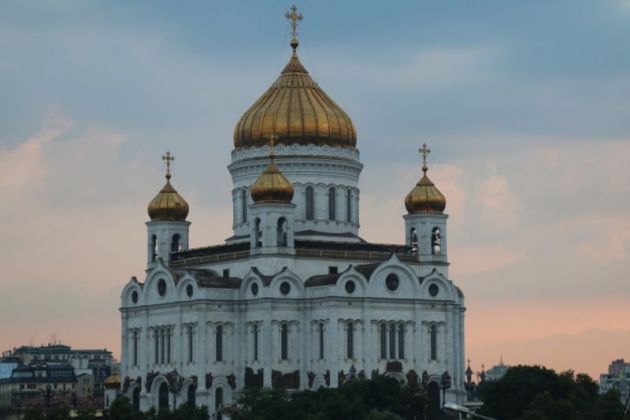Churches condemn ban on church services in Russian apartment blocks

If implemented the Russian move introduced as a draft law on Oct. 30, would hit the religious communities hard.
Following the Russian Orthodox Church hierarchy, Catholic bishops are also opposing the move.
Religious communities in Russia spoke up in November against a draft law banning religious services in residential buildings, that was proposed on Oct. 30, OSV (Catholic) News reported.
In many places, church congregations can only meet in apartment blocks because they lack places of worship, said Rev. Kirill Gorbunov, spokesman of the Moscow-based Catholic bishops' conference.
Speaking to KNA, a German Catholic news agency, he said, "In many Russian cities, historic churches were not returned to the faithful or were simply destroyed during the Soviet era."
He noted that in some places the authorities fail to grant permission for the construction of a new church, or the parish does not have the funds for a new building.
CATHOLIC BISHOPS' CONCERNS
"The Catholic bishops share the concerns of other denominations and intend to communicate their views to the legislators in writing," Father Gorbunov noted.
He also declared that there are sometimes conflicts with residents of the houses:
"They are convinced that only sects meet in residential buildings and that all genuine churches have their own buildings."
The bill was submitted to the lower house of Russia's parliament, the Duma by the small pro-Kremlin group New People.
It provides for changes to the law "on freedom of conscience and religion." Religious ceremonies and the holding of public services are to be severely restricted in residential buildings.
According to the explanatory memorandum, gatherings of large numbers of foreigners and immigrants lacking permanent legal status increase the security risk in residential buildings.
The document also talks about the deterioration in the crime statistics, fears among residents, and breaches of fire safety regulations.
Protestant and Muslim communities have raised the strongest opposition to the bill.
However, criticism has also come from the head of the legal department of the country's dominant Russian Orthodox Church, Abbess Ksenija Chernega.
She warned that, in its current form, the bill prohibits Russian Orthodox clergy from administering communion, anointing of the sick, and other religious rites in homes at the request of the faithful. This would affect the seriously ill and the dying, Orthodox house churches would also have to close.
The head of the legal department of the Moscow Patriarchate demanded a revision of the draft.
However, she shared Russian lawmakers' objections to the performance of religious rites in homes by "migrant groups that do not have the status of a legal entity."
It is still unclear what will happen with the controversial bill.
According to official figures, the New People party received slightly over 5 percent of the vote in the 2021 parliamentary election and thus entered parliament for the first time.
The German Institute for International and Security Affairs assumes that the party was founded on the Kremlin's initiative in 2020 "to channel dissatisfaction among the population into the controlled party system."
Around 800,000 Russian citizens are Catholic -- a small diaspora church given it's about 0.6 percent of the population. Soviet persecution and immigration from Russia decimated the community said the Catholic news agency.
Russia is, however, not the only country restricting religious groups.
UKRAINE BAN ON MOSCOW-LINKED CHURCH
In September, Ukraine placed a ban on a Moscow-linked church and a writer for the US-based Carnegie Foundation warned it would have far-reaching consequences.
Carnegie Politika commented that Ukraine passed its law banning religious organizations with links to Russia and the main target of the law is the Ukrainian Orthodox Church of the Moscow Patriarchate (UOCMP), which was established in 1990 as a self-governing church under the canonical jurisdiction of the Russian Orthodox Church (ROC).
It warned, "The repercussions of outlawing the Ukrainian Orthodox Church of the Moscow Patriarchate could be more serious than Kyiv seems to realize."
"The Ukrainian government held back from taking such a step immediately after the full-scale invasion by Russia: after all, the UOCMP is the country's biggest church.
"However, hopes there could be a gradual reconciliation between different branches of Orthodoxy have faded amid wartime polarization. The formal ban is a major moment in a long-running dispute, and will have far-reaching consequences for Ukraine both at home and abroad," said Carnegie Politika.
It noted that when the Orthodox Church of Ukraine (OCU) was established in 2018 under the jurisdiction of the Ecumenical Patriarchate of Constantinople based in Istanbul, it was hoped that the UOCMP and the OCU would gradually merge.
"But the war has dramatically reduced the space for dialogue and compromise. Instead, the continued presence of a religious organization formally affiliated with Moscow has angered patriotic Ukrainians and provoked the suspicion of the authorities."